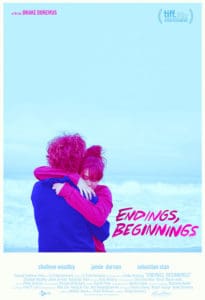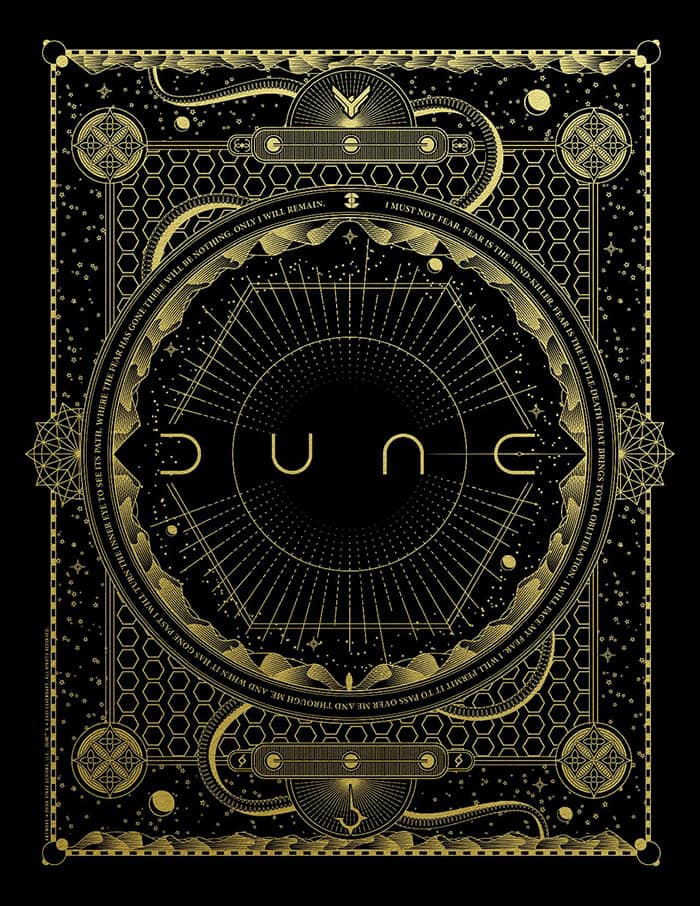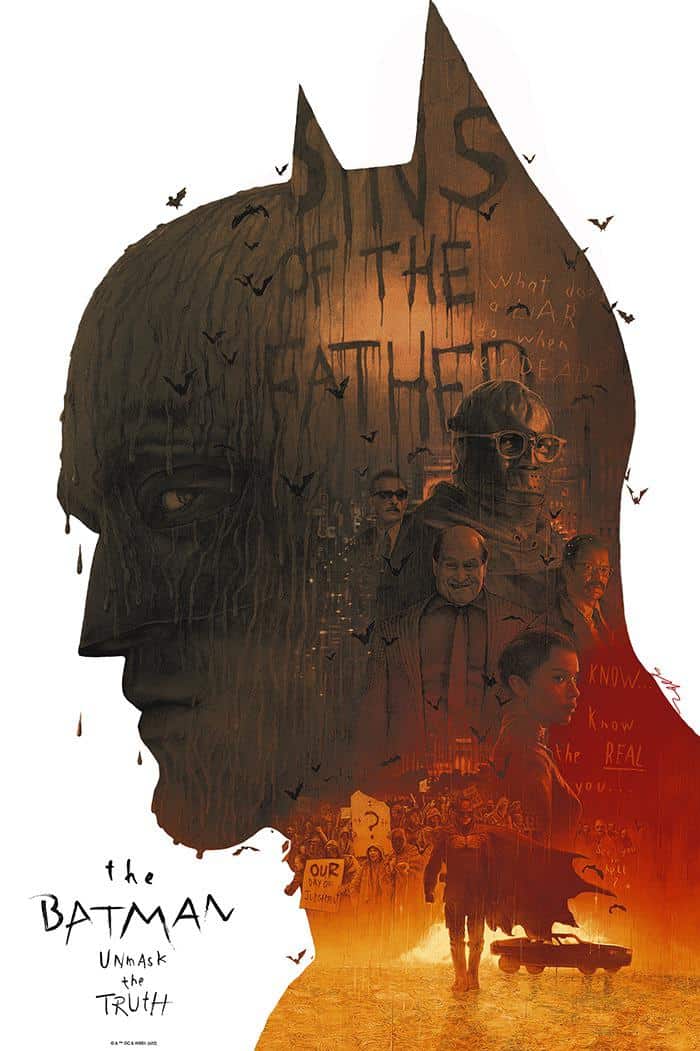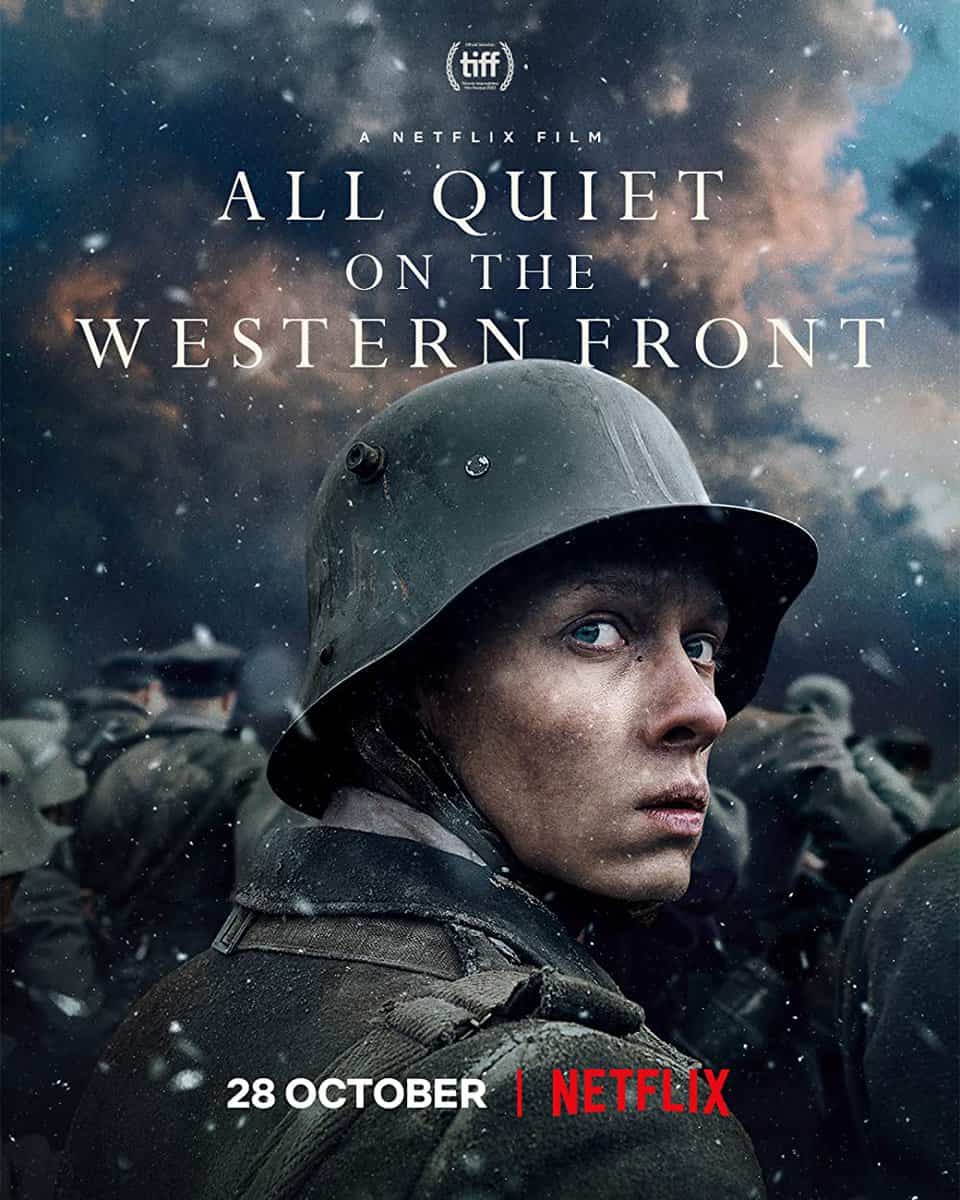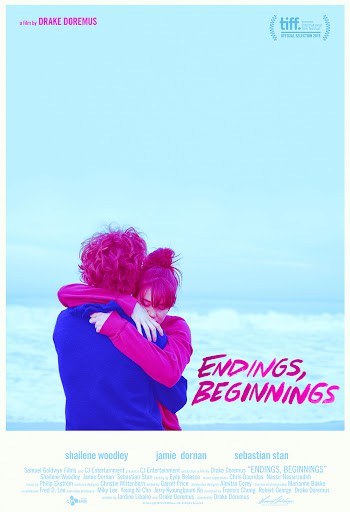
Steven Price continues his streak of impressive yet unheralded scores with Archive. Not surprisingly, Price creates a largely electronic score for this film set in 2038. But this is not the stereotypical glossy neon synthwave future; it is droning, bleak, and whose sparing gentle moments are eventually consumed by a dreadful roar. It is a reflection not just of the film’s more personal struggles and conflicts, but also of the ugly years that may lay ahead for us all.
Swedish indie musician Philip Ekström moves to the big screen in Endings, Beginnings. The film’s original poster and basic premise – a romantic drama centered around a love triangle – give the initial impression of standard romance fare. But the score is so much more than that. Channeling his inner Robin Guthrie and Harold Budd, Ekström creates a detached, somber atmosphere of floating through life and grasping fruitlessly at an always-elusive happiness. The minimalism and delicate melodies are disarming, culminating in the devasting gentle barrage of piano found in “Fields/Daphne.” It is an emotional storm, and one of the biggest musical surprises of the year.
Having seen videos of Bear McCreary, I can tell that there’s been a musical mania built up over the years, waiting to be released (watch, for instance, him and his toy piano for Chucky). Animal Crackers finally lets McCreary run wild, and he takes full advantage of it. A mixture of circus musical, orchestral, funk, and virtually everything else (not to mention a full gamut of instruments including kazoos, organs, and surf rock guitars), Animal Crackers is over an hour of absolute, unrestrained fun. It is chaotic and anarchic, but also intimate and elegant, with numerous themes and complex orchestration. Simply put, it may be McCreary at his absolute best. Normally I decry long scores, but Animal Crackers earns its length (roughly 74 minutes), not only because there is so much to unpack but also because it remains such a joy to listen to throughout.
James Griffiths makes some unexpected choices in his score for the thriller Alone Wolf. Although billed as a thriller, the main theme is eerie and piano based, reminiscent of a Gothic horror. While the score moves into noisier/droning electronic territories (including appropriating some sound design aspects), the piano theme always returns. It’s a fascinating mixture, as the two styles are so distant. But Griffiths makes them work to create an endless stream of fear and uncertainty.
Mikkel Hess (aka Hess is More) creates a suffocating darkness in Suicide Tourist (aka Exit Plan). Hess uses a variety of techniques and genres for one purpose: melancholia. From overwhelming noise to somber saxophone wailing away in an endless void (on “Invisible Saxophone”), the score is akin to being pulled down into a vast pit of despair.
Honorable Mentions
Unfortunately there are often more great scores released in a given month than I’m able to write about. Here are a few other of my favorites from July:
- Silhouette by Michael Vignola
- No. 7 Cherry Lane by Phasura Chanvititkul, Yu Yat-yiu, and Yonfan
- Sulphur and White by Anne Nikitin
